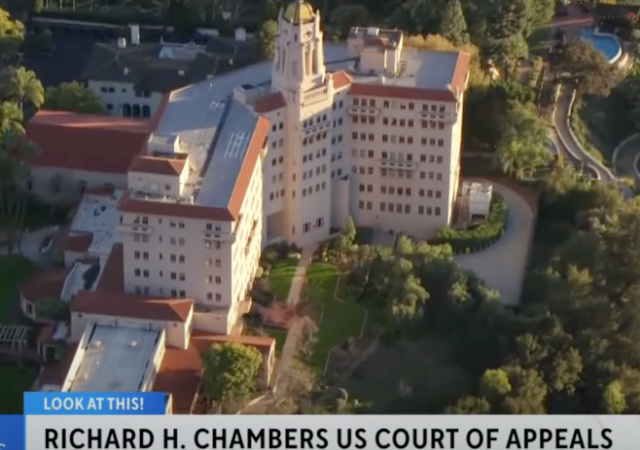Federal Appeals Court Engineered ‘Judicial Jailbreak’ by Approving Mass Release of Criminal Defendants: Dissenting Judge

A federal appeals judge accused his colleagues of approving a “judicial jailbreak” after they affirmed a lower court’s order compelling Oregon to release criminal defendants from jail. The lower court held that Oregon violated the defendants’ Sixth Amendment right to counsel by failing to appoint counsel in a timely fashion.
The order requires Oregon to provide counsel to indigent defendants’ within seven days of their initial court appearance or, failing that, to release the defendants pending trial. The order does not prevent Oregon from prosecuting the released criminal defendants, nor does it apply to defendants charged with murder.
Oregon judges overseeing the releases may impose community control conditions like electronic monitoring.
The lower court issued the order after finding that the defendants’ lack of counsel and ongoing incarceration denied them an opportunity to prepare for critical trial stages, causing them to suffer ongoing irreparable harm. The two-judge appeals court majority concurred.
The dissenting judge, however, wrote that the majority’s holding was unmoored from precedent and that the lower court failed to fully consider the public safety implications of its decision, which amounted to a “judicial jailbreak.”
The dissenting judge listed the extensive criminal backgrounds of the criminal defendants and their pending charges:
First there is Petitioner Richard Owens, Jr., who has been convicted of two felonies—one for prior assault with a firearm. Mr. Owens’s current detention stems from a June 2023 incident, when he allegedly sped his vehicle down the road and in front of an eight-year-old’s birthday party. When victims yelled at him to slow down, he got out of his car, pulled out a gun, told the victims to “[f]uck around and find out,” and fired the gun into the air after speeding off.Tyrik Dawkins . . . has two prior drug-trafficking felony convictions, a contempt-of-court conviction from Pennsylvania, a prior domestic-violence arrest from Washington, and at least three restraining orders filed since 2020 by women whom he allegedly physically abused, sexually assaulted, or threatened to murder. What brings Mr. Dawkins to the Washington County jail? Four counts of rape in the first degree, four counts of sexual abuse in the first degree, and two counts of kidnapping in the first degreeWe have also Petitioner Leon Polaski, who is accused of strangling his girlfriend during an argument and then fleeing Oregon to avoid prosecution; Petitioner Joshua James Richards, who allegedly assaulted a police officer and who had already missed mandatory check-ins with Oregon’s pretrial-release services; and lead Petitioner Walter Betschart, who was arrested for violating the terms of his previous release agreement and for violating his stalking order against his neighbor. Next to these defendants, Petitioner Timothy Wilson’s two counts of public indecency seem banal.
The majority countered that the exemption for those charged with murder, coupled with the allowance for community control conditions, addressed the dissenter’s concerns. The majority also took the dissenter to task for alleged misrepresentations of Sixth Amendment precedent.
This case arose after the state capped the number of clients a public defender could take simultaneously. Coupled with low pay for private attorneys accepting an appointment to represent criminal defendants, this resulted in a shortage of attorneys available to represent indigent criminal defendants.
In one case, an unrepresented defendant denied release at a bail hearing spent nearly a year in jail awaiting trial. This lengthy detention occurred despite the presiding judge agreeing with the defendant that failure to appoint him counsel violated the Sixth Amendment.
Affected criminal defendants argued the absence of counsel for extended periods violated the Sixth Amendment’s right to counsel, especially in light of Gideon v. Wainwright (1963). In Gideon, the U.S. Supreme Court held that the Sixth Amendment requires the government to provide counsel to those who lack the means to hire an attorney.
CLICK HERE FOR FULL VERSION OF THIS STORY